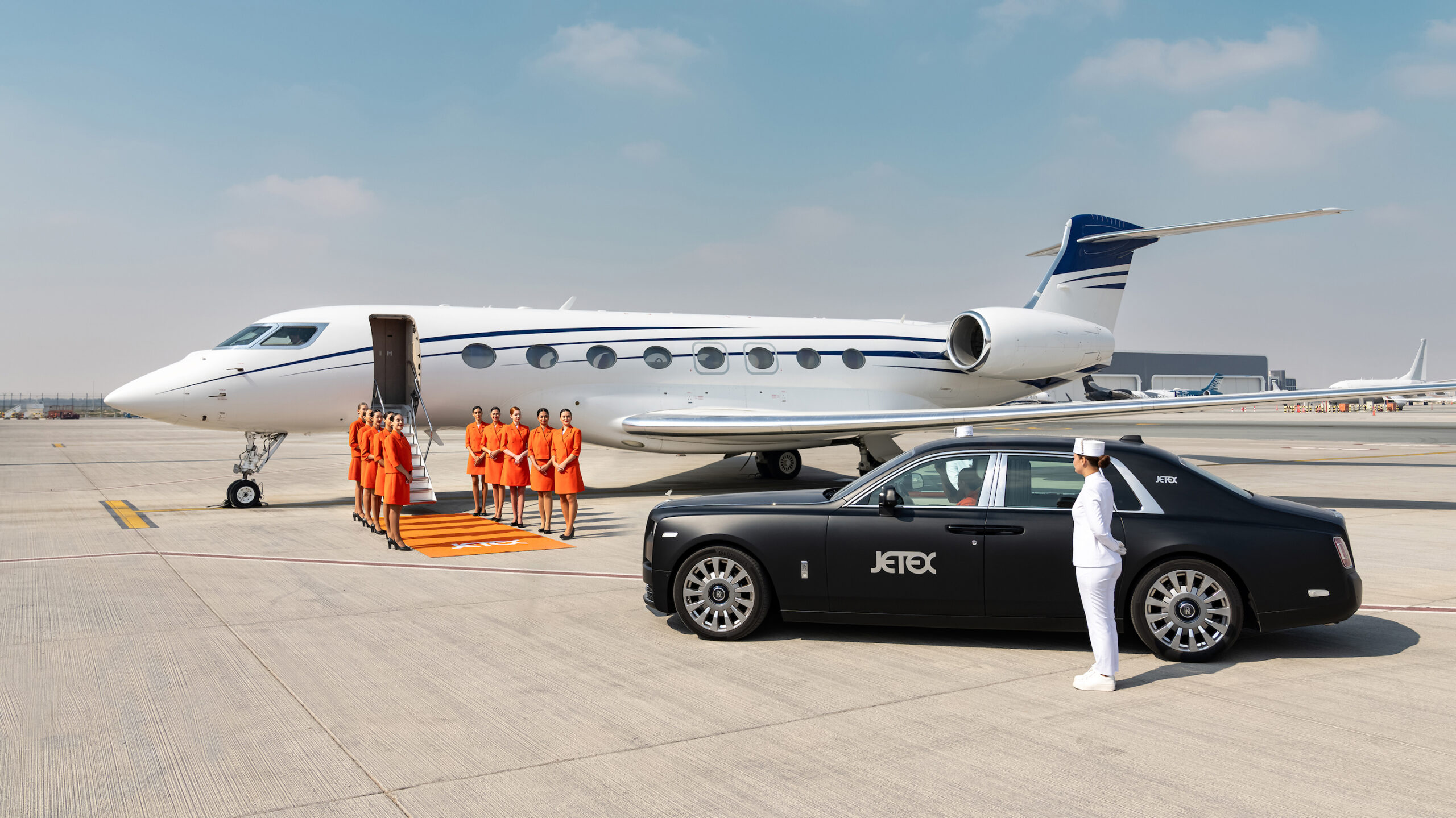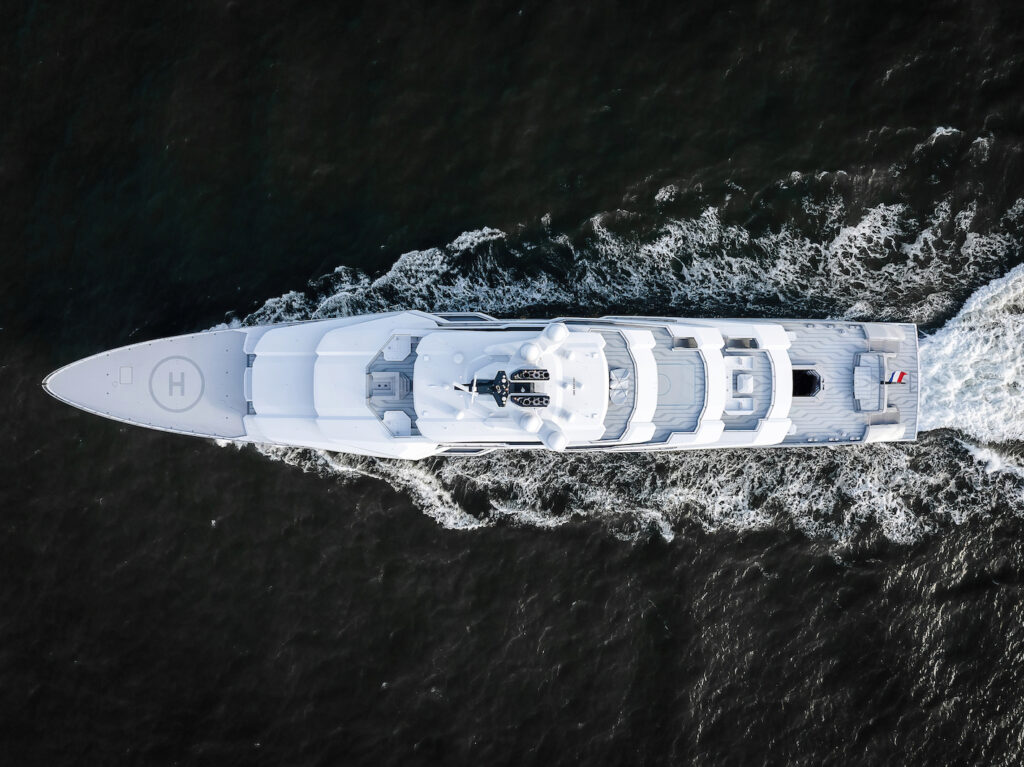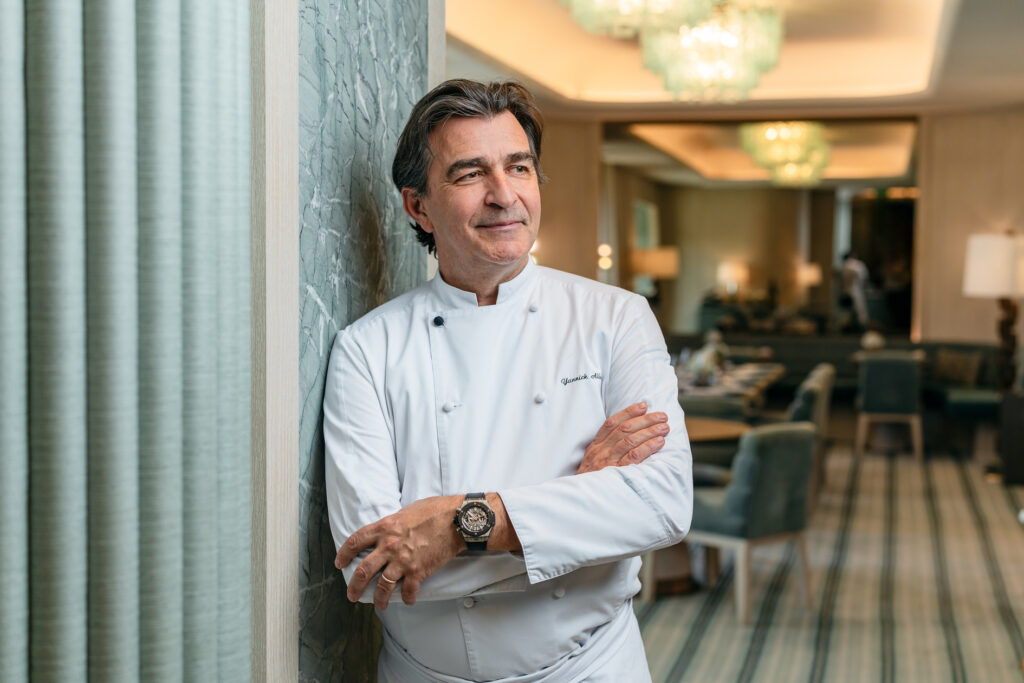Adel Mardini, the founder and CEO of Jetex, continues to pioneer private aviation with his brand. We chart his inspiring journey from humble beginnings to the skies.
From the bustling streets of Damascus to the rarefied airfields of Dubai and Nice, Adel Mardini’s journey is anything but conventional. Once a bus driver ferrying children to school in Syria, Mardini now stands at the helm of Jetex—a trailblazing global brand transforming private aviation from a transactional service into a curated luxury lifestyle experience.
“I used to drive a kindergarten bus—160 kids every day,” he recalls. “That taught me patience. I had no experience in luxury, but I adapted. I listened to my clients and learned how they live.” Today, he leads a company that commands fierce loyalty among the world’s most discerning travellers. “A lot of clients say, ‘If we see Jetex at a certain destination, we just book them.’ They don’t ask questions— they know the brand,” says Mardini.
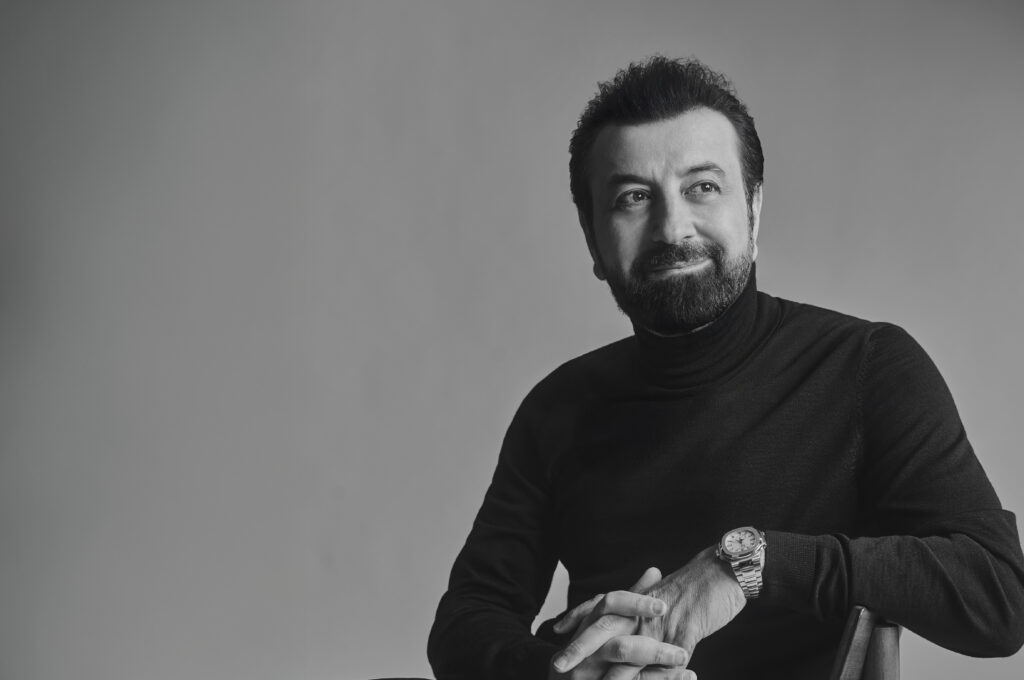
The early days
Mardini’s fascination with aviation began on the ground—quite literally—at Damascus Airport, driving passengers and crew between terminals and planes. But even in his early roles, Mardini was drawn to good service and the idea of creating memorable experiences. “From day one, I loved the service side,” he recalls. “And I always knew I didn’t want to copy anyone. I wanted to do something different.”
When building Jetex, he retained that mindset—and applied it to the individuals around him. “We never recruit skilled people. We recruit passionate people,” he says. “Then we train the skills. Passion is at the core of everything we do.”
Following a move to the UAE, Mardini’s vision took flight. “Dubai gave us the infrastructure and global connectivity,” he says. “That’s where we built the empire.” He founded Jetex in 2005, beginning not with jets, but with the vital role of logistics— clearances, fuelling, flight planning—that make private aviation possible. By solving pain points others often overlooked, Mardini created a brand rooted in precision, trust and elevated service, with a globally renowned reputation that’s flagged by its bold orange branding.
Aviation as hospitality
Mardini’s ambition was never to run a fleet of planes. Instead, he focused on creating an aviation equivalent of the most luxurious hotels. From signature branding and concierge services, dedicated butlers, hosts and culinary experiences, Jetex destinations channel the ambiance of the world’s finest hotels. “I’m inspired by luxury hotels and resorts,” he says. “What a five-star hotel achieves in a full day, we execute with precision in 15 minutes.”
“Most five-star hotels charge around €13,000 a night for a presidential suite; our clients spend that per hour in a private jet,” he adds. “Everything must be perfect—from the warm welcome on arrival to the in-flight comfort, every detail must be flawless. And behind the scenes, we’re also coordinating aircraft safety, fuelling, crew visas and security—making it an even bigger challenge than a hotel.”
Elevated lifestyle
This exceptional service now goes beyond the airport and aircraft experience. As Jetex continues to blur the lines between travel and lifestyle, it is extending its presence to yachts, helicopters, hotels and restaurants. With many private jet clients also owning yachts, Jetex is uniquely positioned to serve both sides of the luxury travel equation. “When we supply a jet, we also provide the service of a dedicated butler. The client lands and then asks: ‘Can we continue Jetex services with us onto the yacht?’—so we’re creating a truly seamless 360-degree experience,” he says.
This vision is already taking shape, with Jetex exploring branded lounges, hospitality concepts and private member experiences. “We’ve seen how brands such as Louis Vuitton, Dior and Tiffany have expanded into lifestyle and dining,” Mardini says. “That inspires us—and reinforces our ambition to lead. Jetex is becoming a destination.”
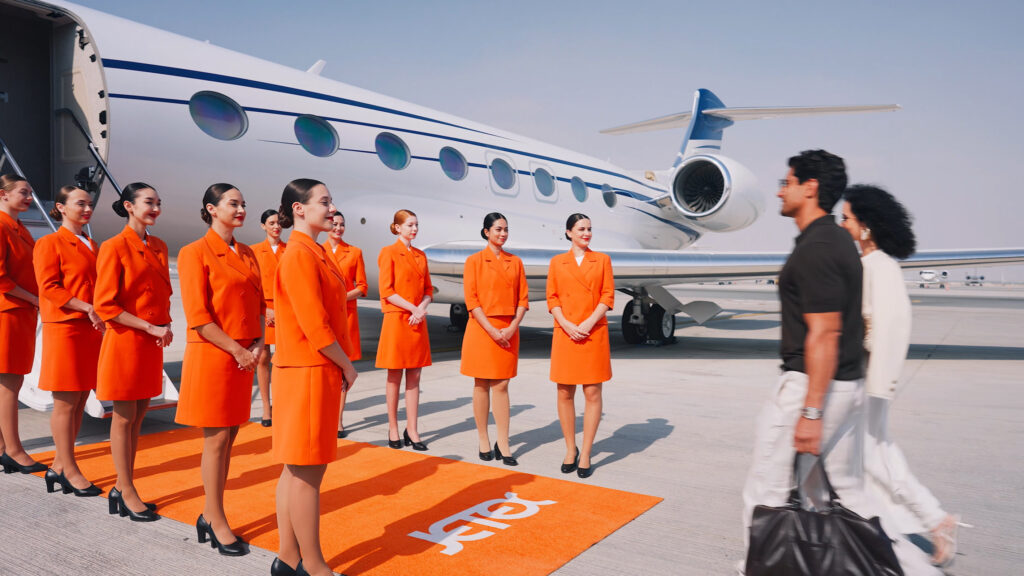
The new jet set
A striking transformation Mardini has observed in recent years is the profile of Jetex clientele—a change accelerated by the pandemic. “Before Covid, private jet travellers were predominantly business focused—oil and gas executives, diplomats, government officials and typically of an older demographic,” he says. “Now it’s crypto investors, tech founders and celebrities aged around 35 to 55. And they’re not just flying once, they’re staying in the market.”
This shift is as much cultural as it is generational. Today’s flyers aren’t looking for luxury as status, they see it as a default. “For them, flying private is not a privilege, it’s how they live,” he says. “It’s not about the seat. It’s about timing, efficiency and trust.” That trust runs deep. “One client told me, ‘I sold my house, I got rid of my staff, but I didn’t sell my jet,’” Mardini recalls. “Because that plane represented that person’s freedom, their identity and their lifestyle.”
To meet changing demands, Jetex has swiftly adapted to evolving client expectations, from enabling crypto payments to personalising every aspect of the flight experience.
Global reach, local prestige
Headquartered in Dubai, Jetex has over 40 hubs around the world and operates across the UAE, Europe and beyond. In France, Jetex has been the leading private terminal at Paris’s Le Bourget airport since 2009. But the French Riviera—particularly Monaco—is a focal point, not just for Jetex’s clientele, but for its vision, and Jetex is actively pursuing opportunities in the region.
“The clientele is already there—they own jets, fly frequently and expect seamless service,” says Mardini. “Nice is a great airport and one of the busiest in Europe. The Riviera deserves to have its own dedicated Jetex terminal, similar to Jetex Le Bourget—and we’re ready to help create it.”
As Jetex grows, Mardini is determined to resist the temptation to franchise, preferring to retain full control to ensure standards remain uncompromised. “We want to stay hands-on,” he says. “It’s about quality and trust.”
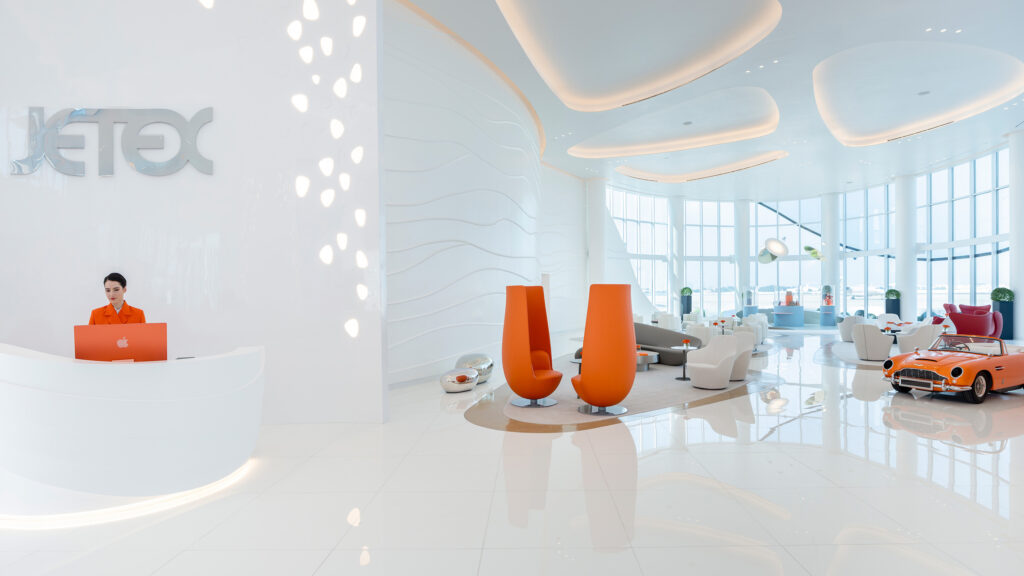
Into the future
Jetex is poised to help pioneer the next wave of aviation: electric vertical take-off and landing (eVTOL) aircraft. The company has already partnered with industry innovators, including Archer and Joby, to create the infrastructure and passenger experience around these new forms of travel.
Jetex is also offering Sustainable Aviation Fuel (SAF) where possible. “The challenge isn’t cost, it’s availability,” Mardini says. “Clients want to reduce their footprint. We just need the infrastructure to keep up.”
A pioneering visionary
Despite Jetex’s success—100 percent growth since 2023, more than 1,000 employees and global brand recognition—Mardini remains very involved personally. “I don’t see myself as done,” he says. “There’s so much more to build.” His ambitions include a multifunctional destination terminal—an opulent private terminal that reimagines the travel experience through hospitality and lifestyle. Now in design, it may debut within the next two years.
When asked about the secret to his success, Adel Mardini doesn’t speak of business models or capital strategy. “No ego. Just passion. And go big—or go bigger,” he laughs. “I listen to everybody. But in the end, I find my own way.”
From school buses to private jets, behind-the-scenes logistics to a global lifestyle brand, Mardini’s story is not just one of success—it’s one of transformation, with an influence poised to reshape the future of aviation far beyond the scope of any single company.

